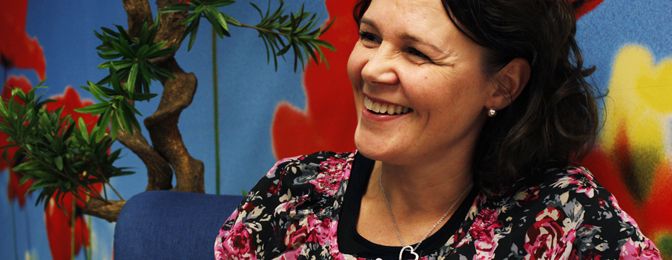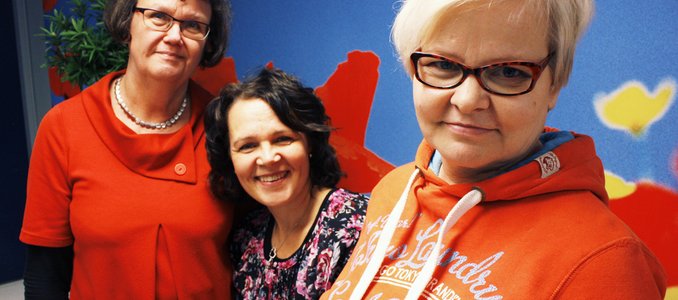
In the health centre of the future, the client will be king
What will health care be like in the future? Will nurses be replaced with robots or will we have to treat ourselves? The changes currently taking place in social and health care make people talk and wonder. TUAS offers tools for municipalities and organisations which are currently tackling the changing service structure.
Text: Tiina Paananen & Jenni Törmä
TUAS' Research Group on Developing Social and Health Care Services and Processes works with topical questions. The social and health care reform, changes in the municipality structure, new laws on social and health care and the development needs of well-being technology will soon affect regular people who use social and health services.
– In the health centre of the future, the client will be king. Along with the Health Care Act, the client can choose where to book a doctor’s appointment and go where they think the service is the best. This poses challenges for health centres and other companies that offer services in the field. They might get into a competitive situation, says D.Sc. (Health Care) and Research Group Leader Pia Suvivuo.
Help with change management
In all future changes in health care the aim is to influence the client’s participation and rights. The aim is to serve the clients more economically and efficiently, for example by means of good management and by developing structures and service processes. Well-being technology will also be benefited more: applications in the field include, among others, different patient data systems and distance monitoring.
– The increase in technology poses challenges for the staff and that’s where we step in: through the research group and continuing professional education, we offer organisations and municipalities tools for change management and its promotion, Suvivuo says.

The research group on Developing Social and Health Care Services and Processes offers its knowledge for the use of cooperation partners.The team consists of 15 people with different scientific and professional backgrounds. In project work, the team works well together by taking advantage of each member’s special competences. However, the work does not always take place within the research group, but the research groups cooperate. The competence and networks of the entire TUAS are used.
– In terms of developing Finnish social and health care work, our research group is in the focal point. I’m glad that we can be a part of developing the service system. If we can contribute to the development work, we’ve done excellent work, says member of the research group Kaija Virjonen.
Successful projects come about in cooperation
The projects of the research group have included building the treatment path of cancer patients, improving the sports opportunities for those with neurological illnesses, developing service structures and distance monitoring for home care and treating diabetes with the help of well-being technology. Mostly the project ideas come about in meetings with the future cooperation partner. It is noticed that a point which has aroused discussion needs developing.
– Managers and directors in the social and health care field know their workplaces like the back of their hands. Once we get to sit at a joint table, we start to think how things can be promoted. Together we can create a project application, and then both get funding to proceed with the project, Suvivuo says.
The projects aim at result-orientation, which is monitored with impact assessment. The assessments take place in the beginning and end of the project. The result of the comparison reveals the gained benefits. It is also the responsibility of organisations whether the operational models developed in the projects are used in the future. This requires commitment already at the development stage.
– The completion stage of the project should be focused on. It happens too often that once the project is over, people go back to the way things were and nothing changes permanently. Hence, the projects should create real and permanent results, Suvivuo emphasises.